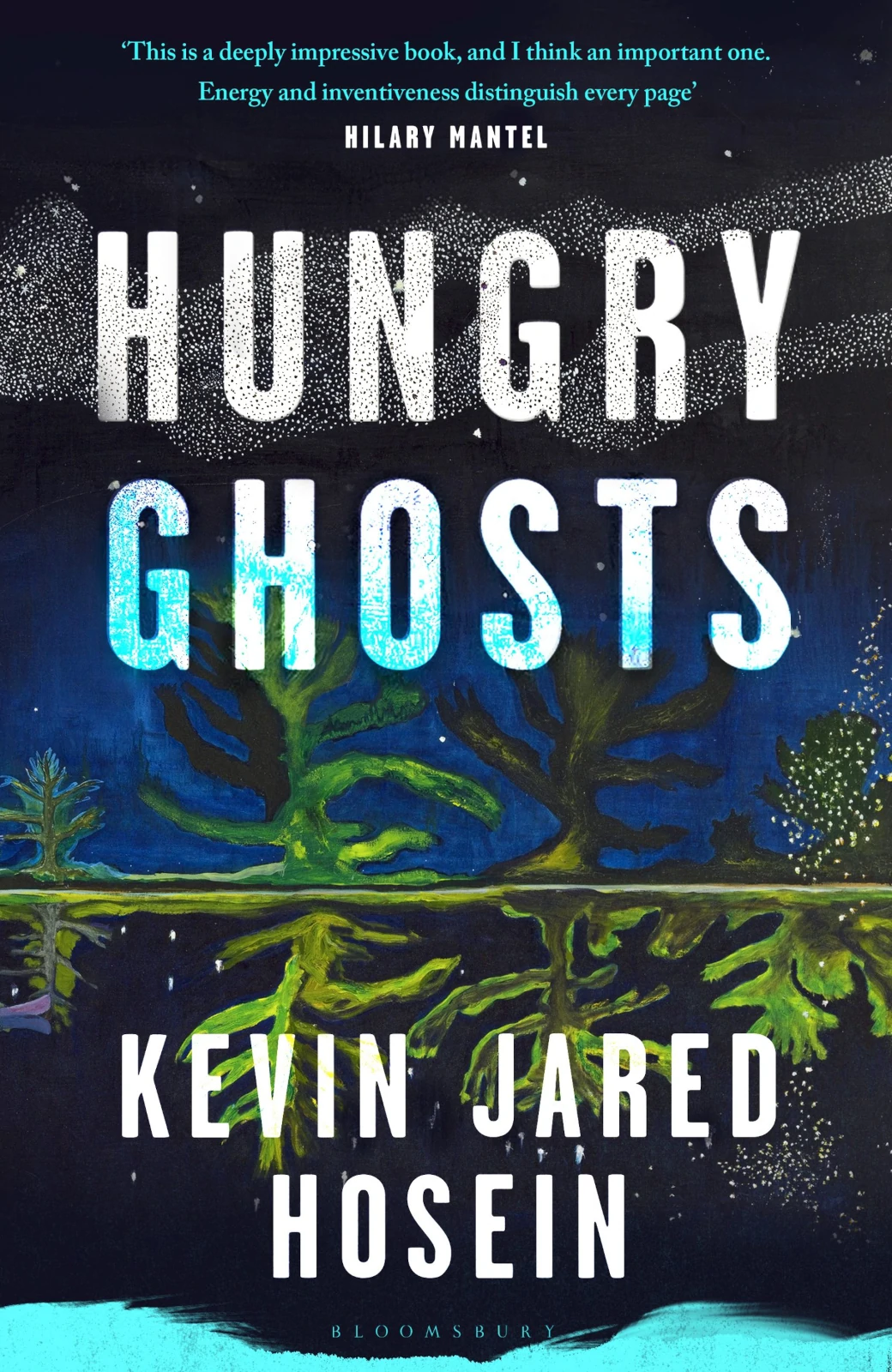
Hungry Ghosts: An Interview with Kevin Jared Hosein
Words By Kevin Jared Hosein, interviewed by Sam Burt
You have said that your own writing career got off to some false starts before you made a conscious decision to “be strategic.” What did being strategic about writing and getting published look like? What advice can you give to emerging writers?
To be an accomplished Caribbean writer back then typically meant moving from the Caribbean. That wasn’t an option for me—my secondary school did not even offer Literature as a subject. Still, I hungered to be a writer! When Trinidad started hosting our Bocas Literature Festival, I illustrated and self-published a short children’s book (Littletown Secrets) in the hope of somehow participating. I’d been in education for a few years, so it was easy using contacts from fellow teachers and librarians to secure orders for their classes and book clubs. The initial run sold out and I became part of their children’s caravan for a few years. To emerging writers, I would say: avoid talking about your work too much before you’ve finished, or even started… you’ll feel as if it’s already complete. Work with the hunger.
Your short stories have won awards and appeared in many journals and magazines. Which stories are you most proud of?
That would be Passage. I wrote it based on memories of a Trinidadian news story when I was a teen, about the uprooting of a family living in a mountain forest. I wrote it in one feverish night ten years later, only for it to be rejected from every single outlet I submitted it to. Ultimately, it went on to win the Commonwealth Short Story Prize in 2018. I’m proud because it’s written fully in our lyrical Trinidadian English Creole—and so many people from so many countries got to experience it.
You have said that, as a teenager, you were most interested in three literary themes: revenge, salvation, and madness. Which literary themes most interest you in 2023?
I often say that Trinidad writes itself. Many stories I write are drawn from actual people, communities or events. We are a theatrical kind—people of entertainment. Revenge, salvation, and madness continue to be three thematic sources of entertainment and dramatic intrigue in our oral traditions. At the same time, I am interested in up-ending expectations of these themes. I’m drawn to thinking about moments that cause humans to react in the most seemingly inexplicable ways, and how madness can be relative to scenario and time.
Hungry Ghosts features a sizable cast of characters. Did certain characters come to you first with their stories, with others branching out from them as the plot required? Or did the community at the barracks appear fully-formed?
Marlee Changoor came first, and everyone else met her along the way. The settings had already come fully formed, however, from the barrack to the dark riverside to Bell Village to the wild plains; senses and ecology, all. In my head, I had weighed the majesty and sovereignty of the land against the gilded diorama that the Changoors had created, almost as if to shut nature out. I created keystone images to guide each character, like leitmotifs—Hans hidden in water, Krishna surrounded by torn magazine pages, Shweta being lashed by laundry.
The novel is set “sometime in the 1940s in Trinidad,” with specificities of time and place richly evoked throughout. How much of the Trinidad in this novel is the land you know, and how much the product of research?
Many parts of Trinidad have acted as time capsules, preserving the conviviality of halcyon days: ancient graveyard parables, hammocks and bead curtains, and rituals of self-sustenance. I spent my first few years in a rural village where time has slowed like this. So much wilderness has stood against the olden beast of time. I haven’t lived in the 1940s, but I can recognise its faded echoes. And I was fortunate enough to converse with the elders of my family and childhood village, who lent a cerebral tone and timbre to those echoes.
How do you approach the responsibilities that come with writing historical fiction? Does one side of this equation lead the other?
I did once feel nervous about elders and historians reading Hungry Ghosts and secretly compiling all the anachronisms and misnomers—all of which I’ve tried my best to keep to a minimum! However, my goal was never to create a facsimile of Trinidad at that time, but rather to capture the growing dread of us having to face ourselves in becoming what the colonial authorities never wanted us to be—a civilisation. And the ensuing beautiful nightmare of clashing faiths and privileges along the way.
You describe going through a transition period of writing “in the uncanny valley of an unconfident identity,” writing over-explained stories set in your home country and doubting whether to write in Creole vernacular. Do you feel like you have left that valley?
In school, we never really learned how to write in Creole vernacular. Some are still probably discouraged from doing so! And so it exudes an illusion of clunkiness when put on the page. It’s foolish now to think that nobody will know what you’re talking about—they have Google. Still, I keep in mind that some of the more specific or esoteric aspects of Caribbean culture can benefit from elucidation—it can be slickly done with just an em-dash and a short poetic phrase. If decades of readers can be cool with A Clockwork Orange’s ‘devotchka’, ‘moloko’ and ‘malchick’, I think there’s little sense in worrying about ‘badjohn’, ‘dingolay’ and ‘tabanca’.
What book are you most looking forward to reading in the year ahead?
Yellowface by R.F. Kuang. I’ve heard that at its meta-fiction core is a moral greyness that tackles (and possibly subverts?) ideas of privilege, identity, and appropriation.